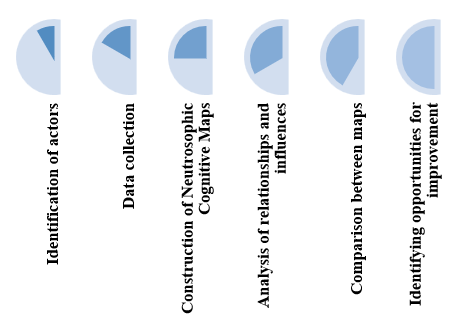Use of Neutrosophic Cognitive Maps for a more complex representation of human perceptions
Keywords:
Neutrosophic Cognitive Maps, perceptual modeling, uncertainty analysis, neutrosophic logic, complex representation, indeterminacy, analytical tools, strategic decision-makingAbstract
The research addresses a central problem in the modeling and analysis of human perceptions: the need for tools that capture more richly and accurately the complexity inherent in opinions, especially in contexts of high uncertainty and contradiction. In a scenario where traditional methodologies such as conventional cognitive maps lack the flexibility to represent nuances such as ambiguity or non-linear relationships, a key opportunity arises to explore innovative approaches. This methodological gap raises the question of how to integrate neutrosophic logic into analytical tools to improve the representation and analysis of complex perceptions in diverse environments. The study proposes and validates the use of Neutrosophic Cognitive Maps (NCM) as an advanced methodology that incorporates degrees of truth, falsity, and indeterminacy simultaneously. The results show that NCMs allow for modeling more dynamic and realistic scenarios, overcoming the limitations of traditional techniques. Moreover, its implementation not only contributes to the theory of neutrosophic logic but also presents significant practical applications in solving complex problems, from strategic decision-making to organizational planning. This contribution highlights how NCMs, by fusing mathematical rigor with interpretive flexibility, constitute an essential tool to address contemporary challenges in disciplines such as management, social sciences, and engineering.
Downloads

Downloads
Published
Issue
Section
License
Copyright (c) 2024 Neutrosophic Sets and Systems

This work is licensed under a Creative Commons Attribution 4.0 International License.






